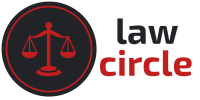United Airlines Flight Attendant Unpaid Wages Lawsuit
by Ayden

In addition to United Airlines and JetBlue, other major carriers are also subject to lawsuits for unpaid wages for flight attendants. These are just some of the reasons why these airlines may be liable for flight attendants’ unpaid wages. The airlines, however, likely will appeal the verdict. While this is a common occurrence, it is worth noting that state wage and hour laws differ widely. As a result, airlines operating internationally need to be mindful of state wage and hour laws.
JetBlue
The Wendell H. Ford Aviation Investment and Reform Act of the 21st Century (AiR-21) has helped protect flight attendants from unfair dismissal. However, it has not prevented JetBlue from violating the law. Many employees have filed suits against the airline, including flight attendants. The lawsuit seeks unpaid wages and other benefits for these workers. It is possible that you could be next.
The case asserts that JetBlue failed to compensate workers for their sick days. It also argues that the airline violated the overtime law, which requires flight attendants to be paid at least one and a half times their regular rate of pay for hours worked beyond eight hours. In addition, the law requires JetBlue to provide sick leave and pay sick days during “Critical Coverage” periods, during which employees double their disciplinary points, which can result in termination. In July, the union filed a lawsuit against JetBlue in the Queens Supreme Court, seeking a judicial order to stop these actions and to ensure the safety of flight attendants.
The plaintiffs have filed a class-action suit against JetBlue, claiming the airline violated California state law by failing to pay all hours worked by its flight attendants. The complaint claims that JetBlue failed to pay flight attendants for the full hours they worked in California, and only compensated them for the hours they spent at the gate and on the plane. The company has agreed to settle the suit and the plaintiffs have filed a joint status report and met with a mediator. The court will consider the settlement of the suit by the end of July.
United Airlines
After losing a U.S. District Court lawsuit in 2015, Jeannie Stroup and Ruben Lee decided to file a United Airlines Flight Attendant Unpaid Wages lawsuit against the airline. The women were fired from their jobs on the airline for reasons ranging from sharing earbuds during drink service to not wearing an apron. A federal jury found that there was more to this story and that the reasons United gave were a pretext for age discrimination. United Airlines’ lawyers tried to convince the court to hold individual hearings.
The airline argued that its pay policies were consistent with the California Labor Code. The Plaintiffs, however, argued that the policies violated the VPWL and the California Labor Code. The airline then moved the lawsuits to federal court, where a District Court judge granted United’s motions for summary judgment. After a two-year battle, United is now looking at a new strategy to try to settle the lawsuits.
The flight attendants have argued that United violated California Labor Code rules by ignoring their hourly rates and not including their hours worked. This lawsuit is an extension of the case that was filed in California in 2017. United had previously dismissed a similar lawsuit, Felicia Vidrio v. United Airlines Inc., which was part of a class-action lawsuit. However, after the case was decided in Ward v. United Airlines, this case was ripe for reconsideration.
Virgin America
In a recent class action lawsuit, California-based Virgin America flight attendants claimed that the airline violated California labor laws. In particular, they alleged that Virgin did not pay their minimum wage or overtime wages. A district court agreed, certifying a class of similarly-situated plaintiffs and granting them summary judgment on almost all claims. In a nutshell, Virgin America owes its flight attendants the wages they were entitled to under California labor laws.
The lawsuit claims that Virgin America failed to pay its flight attendants for meals, mandatory drug tests, and training hours. Moreover, flight attendants were not allowed to take rest breaks or meal breaks before boarding. In addition, Virgin failed to provide them with accurate wage statements and did not give them an adequate meal and rest breaks. Ultimately, the airline was acquired by Alaska Airlines in December 2016.
The airline argued that the FAA preempted state labor laws, and therefore lacked standing to challenge the claim. This argument was criticized by the Ninth Circuit, which cited Oman v. Delta Airlines, Inc. as a precedent. The court held that the California Labor Code’s meal and rest break rules did not violate federal law. In addition, the California law allows airlines to seek exemptions from rest breaks and meal periods from state labor laws.
In addition to United Airlines and JetBlue, other major carriers are also subject to lawsuits for unpaid wages for flight attendants. These are just some of the reasons why these airlines may be liable for flight attendants’ unpaid wages. The airlines, however, likely will appeal the verdict. While this is a common occurrence, it is…
Recent Posts
- Justice for Abuse Survivors: High-Profile Cases that Made a Difference
- Nexium Cancer Lawsuit
- New Balance Lawsuit Balance Athletica
- Neopets Class Action Lawsuit
- Fastenal’s Fastened to Lawsuits: A Rundown of Legal Tangles
- The Curious Case of Fantasia: Lawsuits and Melodies
- Falls Motor City: Screeching to a Halt with False Advertising Allegations
- Soaring into Controversy: The Murky Skies of Falcon Insurance Lawsuits
- Milk Money Matters: The Fairlife Lawsuit Explained
- Navigating the Maze: What You Need to Know About FCRA Lawsuit Settlements
